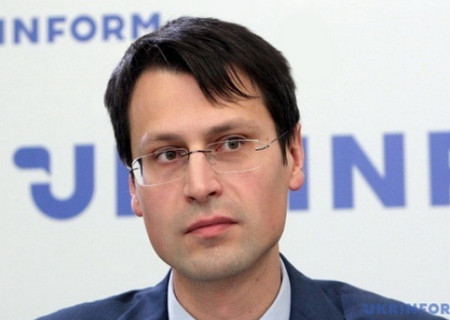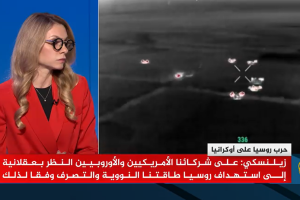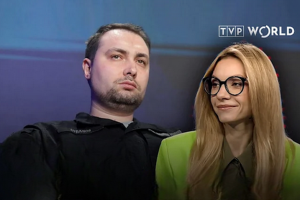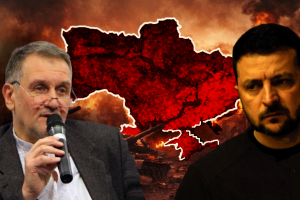Dire strait: Russian naval aggression and Ukrainian politics

Commentary
Petro Burkovskyi, Oleksiy Haran
Kyiv has imposed martial law as a legal framework within which to mobilise national defence, in case Russia engages in coercion designed to establish a new status quo in the Sea of Azov
Russia’s recent attack on the Ukrainian Navy in the Kerch Strait once again signalled its intent to undermine the political and legal structures that arose from the collapse of the Soviet Union. Although it has had only a limited impact on Ukrainian domestic politics so far, the incident in the strait – which links the Black Sea to the Sea of Azov – has the potential to destabilise the entire region.
According to a 2003 bilateral agreement between Russia and Ukraine, the Sea of Azov and the Kerch Strait are “historically inner waters”. Until recently, this deal theoretically allowed the Ukrainian Navy to operate freely in these waters – despite Russia’s annexation of Crimea in 2014. For many Russians, the clash in the strait may be reminiscent of the Russian Navy’s behaviour in the lead-up to the takeover of the peninsula, during which the Black Sea Fleet used a bilateral stationing deal as cover for deploying troops to encircle Ukrainian forces.
A weak official response from Europe or the United States would invite Putin to seek new opportunities to pacify his opponents in Kyiv
If it had abided by the 2003 agreement, Russia would have been unable to interfere with Ukraine’s limited attempt to build up its naval presence in the Sea of Azov. In September 2018, as part of the build-up, Ukrainian Navy vessels sailed from Odessa to the Azov ports of Mariupol and Berdiansk for the first time. Although this did not threaten Russia militarily, it could have cleared the way for the Ukrainian Navy to escort commercial cargo ships, thereby restricting the Russian military’s capacity to stop and inspect these vessels. Accordingly, the move could have challenged Russia’s authority over occupied Crimean territorial waters in the Sea of Azov and the Black Sea. Had this happened, it would have been very difficult for a new Ukrainian president to end the new military escorts and, therefore, the Kremlin would risk incurring higher military and political costs if Russian forces blockaded the Sea of Azov.
Russia likely attacked Ukrainian ships in the Kerch Strait to demonstrate its determination to control the waters around Crimea (regardless of Western sanctions). Moscow may have calculated that, as a relatively minor incident in comparison to the annexation, the attack would not provoke a major international response.
In seizing three Ukrainian ships and 23 sailors without withdrawing from the 2003 agreement, Russia has tried to portray itself as merely resisting the political adventurism of Ukraine’s president. However, this defence rests on the Kremlin’s claim to have annexed Crimea legally – a claim most states reject – and its resulting “rights” to Crimean territorial waters.
Thus, Ukraine has every reason to challenge Russia’s continuing violation of international law and bilateral agreements. Kyiv has imposed martial law as a legal framework within which to mobilise national defence, in case Russia engages in coercion designed to establish a new status quo in the Sea of Azov.
Yet the attack in the Kerch Strat has implications far beyond Ukraine. Russia used military force against Ukraine in international waters on the pretext of defending commercial interests and critical infrastructure such as the Kerch Bridge. It may engage in similarly destabilising practices in the Baltic Sea if it constructs the planned Nord Stream 2 pipeline there. Strategically important to Moscow, the pipeline may provide Russian forces with a pretext to harass seaborne commercial traffic and prevent the navies of non-Baltic countries from accessing the area.
Will the incident disrupt Ukrainian domestic politics?
After days of chaotic messaging about the incident in the Kerch Strait, the Kremlin returned to a narrative that it has focused on since May 2018. Within this narrative, the Russian authorities explain every move Kyiv makes – be it the quest for autocephaly or for integration into NATO – as a product of Petro Poroshenko’s desire to retain the presidency in the 2019 Ukrainian presidential elections.
Indeed, Russian President Vladimir Putin stated in October that he saw no reason to deal with the current Ukrainian leadership and would wait for a possible transfer of power after the elections. Aiming to shape Ukrainian domestic politics, Russia has been at pains to suggest that the government in Kyiv is not acting in the interests of most Ukrainians.
This time around, the Kremlin may try to divert attention away from its aggressive actions in the Sea of Azov by playing popular sympathy for the captured sailors against the Ukrainian president. Therefore, it is possible that Moscow will publicly link the fate of the sailors to the results of the presidential election. The Russian media and pro-Russian politicians in Ukraine could speculate that they will only be released if Poroshenko loses the vote. Alternatively, Putin could free the sailors following a staged meeting between him and a pro-Russian election candidate such as Yuriy Boyko, perhaps boosting the latter’s credentials in the run-up to the first round of voting.
However, as most Ukrainians doubt Russia’s narrative, such a move may backfire. Although the Sea of Azov issue is less important to them than the annexation of Crimea or the war in Donbas, the Ukrainian public may view the naval clash as yet another indication of Russia’s intentions.
According to polls taken in August, 69 percent of Ukrainians believe Crimea should be part of Ukraine and 48 percent think that it will be eventually; 60 percent would accept the deployment of UN peacekeepers across Donbas to end the war there; and 75 percent see Russia’s influence on Ukraine as negative. These attitudes have remained broadly unchanged in the last two years, becoming a part of the political landscape. As such, it is unlikely that Putin or Poroshenko can shift them significantly either way for personal gain or to justify military escalation or a new peace plan.
The sides are probably reluctant to escalate the incident in the Sea of Azov by themselves. Instead, Moscow and Kyiv will wait until external players intervene. A weak official response to the attack from Europe or the United States would invite Putin to seek new opportunities to pacify his opponents in Kyiv. Russia could even take such action on the eve of presidential elections, under the pretext of defending the Russian Orthodox Church in Ukraine.
Petro Burkovskyi is Senior Fellow at the Democratic Initiatives Foundation (DIF).
Oleksiy Haran is Research Director at the DIF.
See: ecfr.eu










